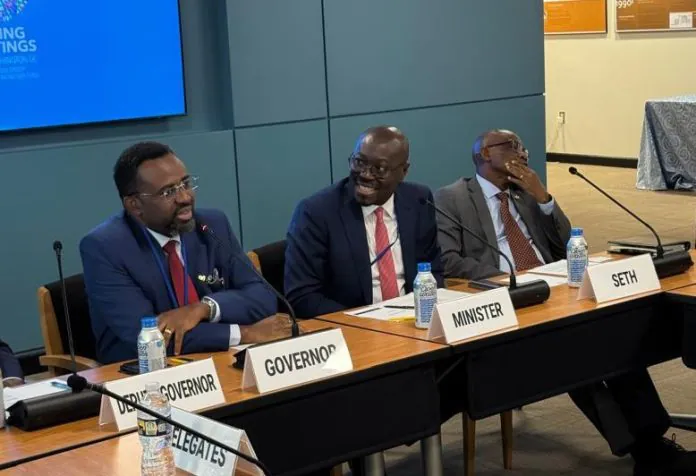Our Terms & Conditions | Our Privacy Policy
Over 350 Ghanaians Hold Key Positions at IMF and World Bank
 Spring
Spring
Ghana’s professional footprint in global financial institutions continues to expand, with approximately 350 citizens currently employed at the International Monetary Fund (IMF) and World Bank headquarters in Washington, according to Kofi Tsikata, President of the Heritage Club.
The global tally of Ghanaian professionals in these institutions exceeds 700, reflecting the nation’s growing influence in international economic governance.
The disclosure came during a meeting between Ghana’s Finance Minister, Dr. Cassiel Ato Forson, and members of the Ghana Heritage Club at the World Bank headquarters on the sidelines of the IMF/World Bank Spring Meetings. The engagement highlighted the diaspora’s role in shaping Ghana’s economic policies and strengthening ties with multilateral lenders.
Dr. Forson emphasized Ghana’s collaborative relationship with the Bretton Woods institutions, citing the recent increase in the World Bank’s Development Policy Operation (DPO) facility to over $400 million as a vote of confidence in the country’s reform agenda. “The focus must shift from borrowing amounts to deploying funds effectively,” he stated, underscoring the government’s commitment to channeling resources into high-impact investments rather than non-productive expenditures.
Bank of Ghana Governor Dr. Johnson Asiama reinforced this message, noting the central bank’s progress in aligning its legal framework with contemporary economic demands, backed by technical support from international partners. He also projected that the Bank of Ghana would avoid losses this year, signaling improved fiscal management.
The meeting, attended by Senior Economic Advisor Seth Emmanuel Terkper and National Development Planning Commission Chairman Dr. Nii Moi Thompson, served as a platform to explore synergies between Ghanaian policymakers and diaspora professionals. Discussions centered on harnessing global expertise to bolster domestic development strategies while maintaining accountability and transparency.
This dialogue comes at a critical juncture as Ghana navigates post-IMF program reforms and seeks to optimize its engagement with international financial institutions. The Heritage Club’s insights are expected to inform policy decisions aimed at sustainable growth, with Ghana’s diaspora positioned as key allies in bridging local needs with global best practices.
Send your news stories to newsghana101@gmail.com
Follow News Ghana on Google News
Images are for reference only.Images and contents gathered automatic from google or 3rd party sources.All rights on the images and contents are with their legal original owners.



Comments are closed.